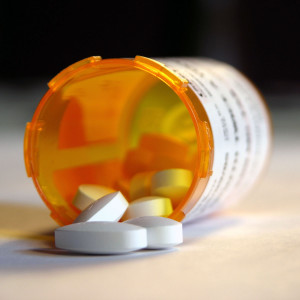When I received my driver’s license my father said to me, “Congratulations, son—now you really learn how to drive.” Driver education courses only ensured that I knew how to operate the vehicle safely and appropriately to get from point A to point B. I had eight fender-benders in my first decade behind the wheel, and I haven’t had one accident for the last decade. My father was right. I learned how to operate a car very well—after I had my license for a while.
If the Department of Motor Vehicles approved driver’s licenses like the Food and Drug Administration approved new drugs and devices, driving tests would go on for months and cost a tremendous amount of money. I would have been tested on driving to points B to Z and countless other scenarios. If the DMV started doing this, Americans would surely say the DMV had lost its way.
Well, the FDA has lost its way and as President Obama’s nominee for commissioner of the FDA—Dr. Robert Califf—moves through the nomination process, the agency’s proper role in the medical ecosystem should be scrutinized.
Congress intended the FDA to license drugs for approval, and then let the medical ecosystem prescribe the drugs in real world circumstances—guided by FDA’s licensing instructions, of course—to arrive at the most appropriate uses for individual patients.
The FDA’s role is clearly defined in the Federal Food Drug and Cosmetic Act (FD&C): “to promote health by promptly and efficiently reviewing clinical research and taking appropriate action on the marketing of regulated products in a timely fashion.” This includes “ensuring that… drugs are safe and effective … [and] there is reasonable assurance of the safety and effectiveness of devices.”
The two most important parts of the FDA’s mission are to judge new products on the basis of safety and effectiveness, and to do so quickly. The median time of approval of novel drugs is 304 days. Considering that 10 months is the target review period for all new drug applications, the FDA is late half the time.
The reason that the FDA is incorrigibly late, and the reason that many companies don’t even try to develop drugs for many diseases that affect millions of Americans, is because the FDA has lost sight of its proper role. The FDA is supposed to be the gatekeeper of medicines that become available to the medical marketplace of physicians, patients, hospitals, payers, and medical community. Congress intended for the FDA to approve only those drugs that could be labeled for safe use and demonstrated the clinical effects claimed by drug developers.
Instead, the FDA is imposing its own standard for what constitutes a good drug. Rather than licensing products for use by doctors, the FDA is trying to dictate the practice of medicine. Rather than entering products that are safe and effective into the medical marketplace for the physicians to use and determine which are best for individual patients, the FDA is endeavoring to tell doctors and patients, upon approval, which drugs are best and how they are to be used. This is not how the system was set-up, nor is it possible.
In my recent research paper for the Mercatus Center on “On the Proper Role of the FDA,” we make the case for the FDA to return to its proper role: arbiters of safety and effectiveness, period. The FDA must be stopped from insisting on long-term outcomes that require humongous clinical trials, which are exceedingly difficult, time consuming, and costly to demonstrate — and are susceptible to getting incorrect answers, especially before approval. If the FDA were returned to its proper role, new drugs would be approved quickly, true personalized medicine would be facilitated, and both drug development costs and prices would be reduced.
You and your doctor need to decide which therapies are best for you and which are most beneficial, not the FDA. The only way that can happen is if the agency assumes its proper role in the medical ecosystem.

